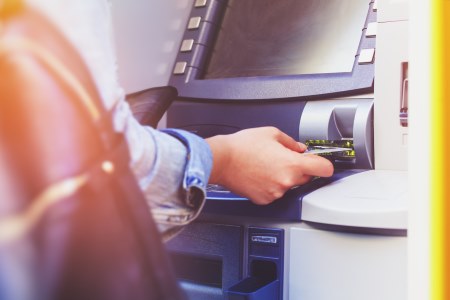
Travelling overseas can be tricky, especially when it comes to figuring out how you are going to manage your funds.
Whether you need euros, pounds, dollars or rupees, withdrawing from an ATM is generally the easiest and cheapest way to get cash while abroad, seeing that exchange rates are usually better at an ATM than those you would get at a local exchange counter.
ATMs also automatically dodge the added transaction fees which are usually demanded by local banks or exchange bureaus, saving at least 2% of your spending funds.
Although ATMs do require their own set of exchange fees, the accrued charge is generally lower for someone who requires cash, making it your safest bet whilst travelling.
Finding international ATMs nowadays has become pretty easy, meaning that cash from your card can be obtained virtually almost anywhere in the world, as the majority of ATMs will accept card withdrawals from the major card networks.
It is wise to utilise an online locator provided by your card network, to ensure that the card is valid in the country you will be travelling to.
Another thing to keep in mind while travelling is that while most ATMs are user friendly, some machines may only provide numbers on their keypad, which is a critical thing to remember for cards with PINs that are letter-based.
Additionally, some card networks will allow foreign withdrawals to be made only from the primary account.
Before embarking on your next adventure, it may be sage to advise your bank that you will be travelling, in order to prevent fraud alerts from freezing your card.
In case your card is stolen or lost, it is recommended to keep the number of your bank at hand, in order to be able to freeze your card on the go.
In the event of lost or stolen cards, it is important to have a back-up plan in order to ensure that you do not remain stranded and cashless, in a foreign (and possibly unfamiliar) location.
Although ATM charges are reasonably lower than those incurred at a bank or exchange bureau, withdrawals will still come at a cost.
It is advisable to consult your bank and inform yourself about their travelling charges. Whilst the latter charges are usually small, the foreign ATMs may also subject you to an extra charge.
Lastly, being aware of these extra charges means that withdrawing large amounts of cash at a go if needed would be wiser than taking smaller amounts more frequently, as the small fees can add up
